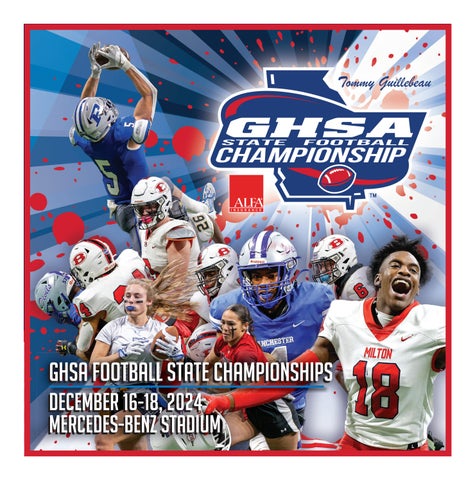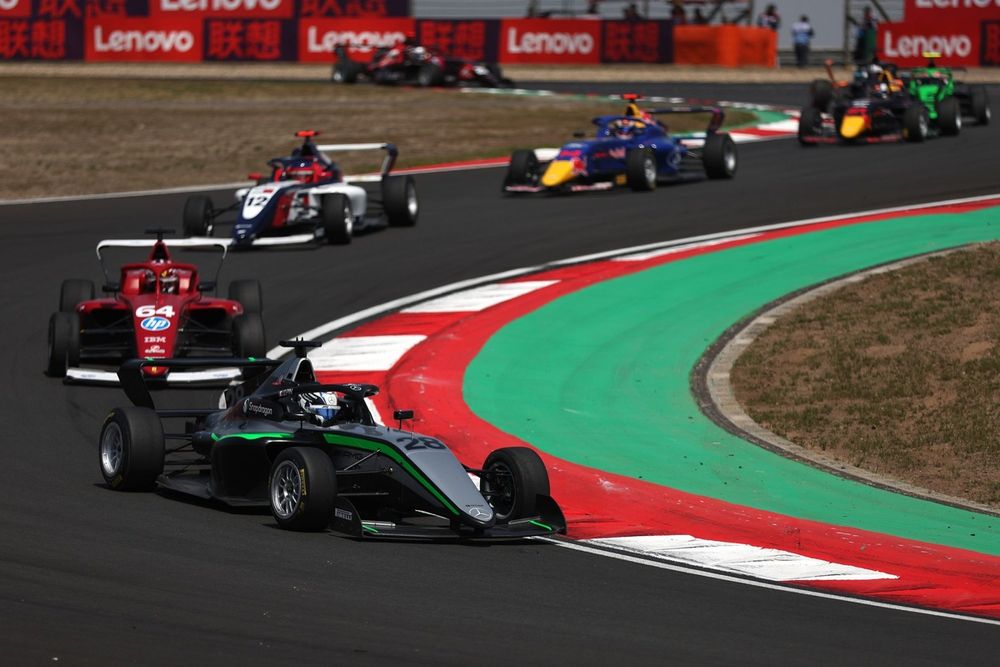Sports
Final Four Bound, the Pepperdine University Men’s Volleyball Team Is Equipped to Handle Adversity | Newsroom
“What makes us unique is that, when it gets close and everyone gets tense, our team thrives,” says Ryan Barnett, an outside hitter for Pepperdine University’s men’s volleyball team. “It’s the opposite of most people.” Pepperdine men’s volleyball team celebrating their berth into the final four Barnett offered these comments in the postgame press conference […]
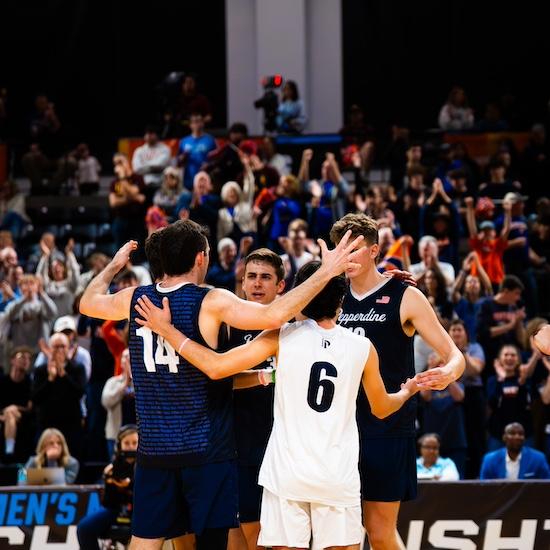
“What makes us unique is that, when it gets close and everyone gets tense, our team
thrives,” says Ryan Barnett, an outside hitter for Pepperdine University’s men’s volleyball team. “It’s the opposite
of most people.”
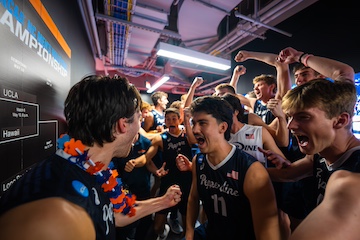 Pepperdine men’s volleyball team celebrating their berth into the final four
Pepperdine men’s volleyball team celebrating their berth into the final four
Barnett offered these comments in the postgame press conference following the Waves
quarterfinal victory over Loyola Chicago on Thursday, May 8. In that contest, Pepperdine
dropped the first set and was forced to fend off three set points in the second to
avoid falling behind 0-2 in the match. As pressure built, Barnett and his teammates
didn’t flinch. They settled in and seized sets two, three, and four—a reverse sweep—to
earn a spot in the NCAA final four.
Now the Waves take on Long Beach State—a non-conference rival who defeated them in
five sets early on in the year. With the stakes at an all-time high, Pepperdine needs
to play its best on the game’s biggest stage. But after overcoming a year of unexpected
hardships—including devastating wildfires—this particular group of Waves are equipped
to do just that.
“A huge identity of our group is our toughness,” says Jonathan Winder (’08), Pepperdine University’s men’s volleyball head coach. “We’ve been through an
insane amount this year. The adversity we’ve battled through has been fantastic and
has really prepared us for these moments.”
A Stress-Filled Start
On January 7, 2025—one week into the collegiate men’s volleyball season—black smoke
began to billow over the Pacific Ocean. On that day, the Palisades Fire erupted and
burned quickly through the Santa Monica Mountains toward Malibu. At the same time,
other blazes broke out as record high winds battered Southern California. In total,
37,000 acres were burned, and 16,000 structures were destroyed.
As the inferno spread, Pepperdine’s men’s volleyball team relocated their early season
practices to Long Beach. Unable to travel to campus because of road closures, the
Waves stayed in a hotel together near their new training facility and watched as the
community around them managed the natural disaster.
“It was scary,” says Grant Lamoureux, a redshirt freshman on the team. “I feel like
no other team has gone through something like that this year . . . The team got close
by finding ways to make it through hard times like that.”
In the face of this initial adversity, the Waves squad and season was altered. The
catastrophe raging around them forced them to slow down, take things one day at a
time, and be grateful for one another and the game that brought them together. More
than anything though, the Los Angeles wildfires gave Pepperdine something to play
for.
“Anytime you see such suffering, it produces something,” says Winder. “For us, it
produced more pride in the community where we live. We wanted to rally behind it and
support it.”
While practicing and living in Long Beach, the team volunteered to help with fire
relief efforts. They loaded semitrucks with clothes and water for those living in
affected areas. They met their neighbors in a time of need. And when the time came
to take to the court again, the Waves did so with greater unity and purpose than ever.
A Willingness to Pivot
Hopping back into the season after a difficult start to the year was not easy given
the Waves challenging schedule. Of the 29 matches they played, 17 of them were against
nationally ranked opponents, including a string of particularly grueling games against
Long Beach State, Loyola Chicago, and California State University, Northridge (CSUN).
In these three matches, Pepperdine went 0-3. They lost in five sets to Long Beach
State and Loyola Chicago in consecutive matches. Being so close but unable to escape
with the wins, Winder and his coaching staff felt like they needed to amp up the intensity
in practice heading into the contest against CSUN. Yet, after doing so, the Waves
lost again—that time in four sets.
“Following that match, we had some tough conversations with the players,” explains
Winder. “They gave us feedback that it was too much—they were too tired going into
that match . . . We ended up changing some practice structures and have adhered to
them ever since.”
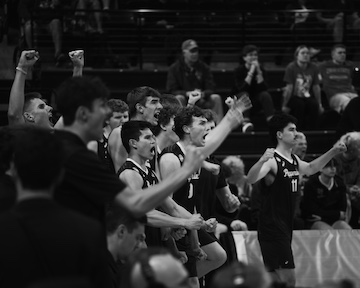 Pepperdine men’s volleyball team celebrating
Pepperdine men’s volleyball team celebrating
The team began to engage in shorter, more purposeful practice sessions. They prioritized
being fresh mentally and physically prior to matches, while still ensuring that they
had a grasp on the fine details of their opponents.
These adjustments led to an immediate six-match winning streak, but more importantly,
overcoming adversity together engendered Winder’s team with a strong sense of trust
in one another. When things weren’t breaking their way competitively, the Waves began
to believe in their ability to preserve and win nonetheless—a strength that eventually
led them to the Mountain Pacific Sports Federation (MPSF) tournament title and a berth
in the NCAA tournament.
The Trust Is Tested
In order to qualify for the NCAA tournament Pepperdine had to first defeat UCLA and
USC in their conference championships. The Waves had battled both of these teams
earlier in the year, losing three times while winning only once against USC.
With the odds stacked against them, Pepperdine defeated UCLA in the semifinals and
beat USC in the championship to take the MPFS title—an unexpected result given the
individual contest stat lines. In both matches Pepperdine had lost in every single
statistical category—serves, kills, blocking, digs—but still managed to claim victory.
“We won with the ability to respond to adversity,” says Barnett. “That’s something
beautiful about volleyball. Everyone thinks you have to be a monster, who can hit
the ball as hard as you can. Everyone thinks you have to be seven foot to block a
ball. But that’s not the case. Being smart and being crafty are often the biggest
differences in these important matches.”
After a season full of lessons—on the court and off of it—Pepperdine is now prepared
for its biggest competitive challenge yet. In the final four, the Waves must take
down the number one team in the nation in order to compete in the national championship
match. However, if the 2025 season has proved anything, it’s that this particular
Pepperdine team thrives in pressure-packed situations like the one its now in.
“I’ve been impressed by them,” says Winder. “I haven’t had that feeling in a long
time. It’s impressive the pride they’ve taken in getting our program back to this
spot.”
The Waves take on Long Beach State, in the NCAA semifinals on Saturday, May 10, 2025,
at 2 PM PDT. The match will be streamed live on ESPN+.
Sports
Manhattan Beach’s Skechers Tour de Pier is part reunion, part cancer research fundraiser
by Kevin Cody The Skechers Manhattan Beach Tour de Pier was a novel idea with uncertain fundraising potential when it debuted in 2013 as a benefit for cancer research. That year it raised $300,000. In the dozen years since, it has raised on average, over $1 million per year, and woven itself into the Manhattan […]
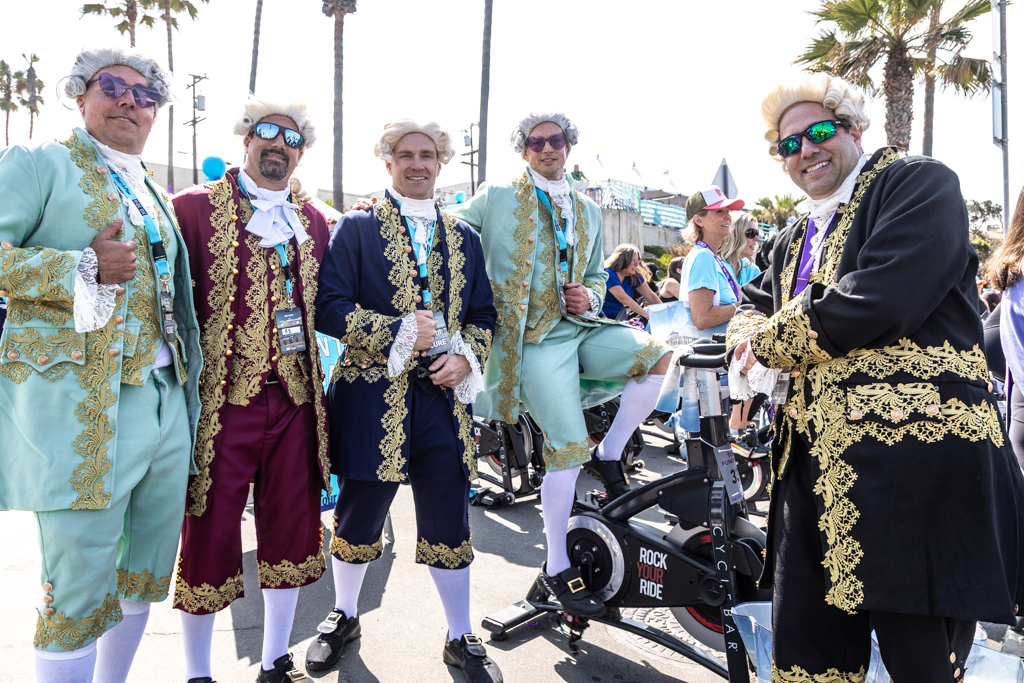
by Kevin Cody
The Skechers Manhattan Beach Tour de Pier was a novel idea with uncertain fundraising potential when it debuted in 2013 as a benefit for cancer research. That year it raised $300,000. In the dozen years since, it has raised on average, over $1 million per year, and woven itself into the Manhattan Beach community fabric. People block out their vacations so they will be in town for the annual May event.
The Mira Coast High School cheer team, this year’s State Champions, are Tour de Pier’s official cheerleaders. Teams that return each year get the prize, front row stationary bikes.
On Sunday, May 18, at this year’s 13th Annual Tour de Pier, the Manhattan police and fire, and Los Angeles County Lifeguards rode their customary stationary bikes in the first spot in the front row, north of the pier.
The first spot, front row south of the pier was reserved for Team Suit Up, who wear suits each year. The first year the five former El Segundo High schoolmates wore three piece suits with ties and black shoes. The second year they wore track suits. Last year, they wore mirrored disco leisure suits, and this year they dressed as dandies from the 17th Century court of the Sun King, Louis the 14th.
“Coming up with a new suit gets harder every year,” Team Suit Up’s Kris Petrevski said.
Tour De Pier was founded by Jon Hirshberg, whose father died of pancreatic cancer, and Heath Gregory, whose brother-in-law Kory Hunter died of brain cancer.
Proceeds from the Tour de Pier go to the Hirshberg Foundation for Pancreatic Cancer, the Uncle Kory Foundation for Brain Cancer and the Cancer Support Community South Bay. (CSCSB). CSCSB offers over 3,000 sessions for cancer victims each year, at no charge.
Not all of the cycling teams are local. Team DB Urban, a real estate development company, flies in each year from Salt Lake City.
Tour de Pier’s accompanying Health and Fitness Expo has grown in popularity with ever expanding offerings. This year, Skechers had a pickleball court to showcase its pickleball shoes and apparel The Kings had a street hockey court. Kinecta Federal Credit Union brought its crowd pleasing ice cream truck. Floyd’s Barbershop offered free hair cuts, and Manhattan Beach native Ben Morse offered invitations to his Grand Mango surf camp in Nicaragua.
Fox sports analyst Rob Stone introduced an impressive line up of local athletes, including two-time Olympics soccer gold medalist Mia Hamm, LA Chargers kicker Cameron Dicker and former USC star, and NFL Hall of Famer Willie McGinest.
But like Manhattan’s other signature events, such as the Hometown Fair, the MB 10K, the Skechers Pier to Pier Friendship Walk, and the International Surf Festival, the people the cyclists come to see each year are each other.
For more about the Skechers Tour de Pier, visit TourDePier.com. ER
Sports
Student athlete disqualified from college admission for wearing cap with school emblem
Court says swimming cap should be considered part of swimsuit A student athlete was disqualified from college admission for wearing a cap with his school emblem. A court upheld the ruling, saying it could lead to unfair advantages for the applicant. (123rf) The Seoul Administrative Court upheld the disqualification of a student athlete who was […]
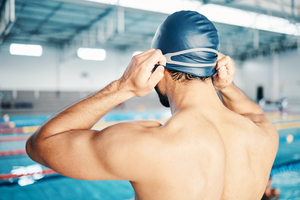
Court says swimming cap should be considered part of swimsuit

The Seoul Administrative Court upheld the disqualification of a student athlete who was denied admission to a university in 2024 after wearing a swim cap bearing the emblem of one’s high school during the practical entrance examination.
The applicant, a water polo player, challenged the decision, arguing that the university’s admission guidelines ban only names or school affiliations on swimsuits — not on swim caps.
However, the court ruled that the swim cap could reasonably be interpreted as part of the swimsuit under conventional usage of the term. The Korean term “suyeongbok” literally translates as “swimming clothes.”
“Regarding the swimming cap as part of the swimsuit is in keeping with the conventional interpretation of the word (swimsuit) … Considering that the rule is to ensure a fair applications process by assessing each applicant’s abilities in no regards to one’s affiliations, there is no reason to treat swimsuit and swimming cap differently,” the court said.
The plaintiff also argued that two other applicants were not disqualified despite wearing marked swimming caps, but the court pointed out that markings on the mentioned caps did not show their school affiliations.
Addressing the plaintiff’s claim that no examiners warned them about the disqualifying attire during the test, the court stated that the absence of such an on-site warning could not be construed as assurance that the applicant would not face disqualification.
minsikyoon@heraldcorp.com
Sports
The Return of Recession Pop and Why It’s Needed Now More Than Ever – The American River Current
As of late, the global economy is facing the increasing fear of re-entering a recession. The current United States President, Donald Trump, has been making questionable moves left and right, and one of the many that strikes fear is the decision to enact tariffs. When the president announced these tariffs in what he deems “Liberation […]
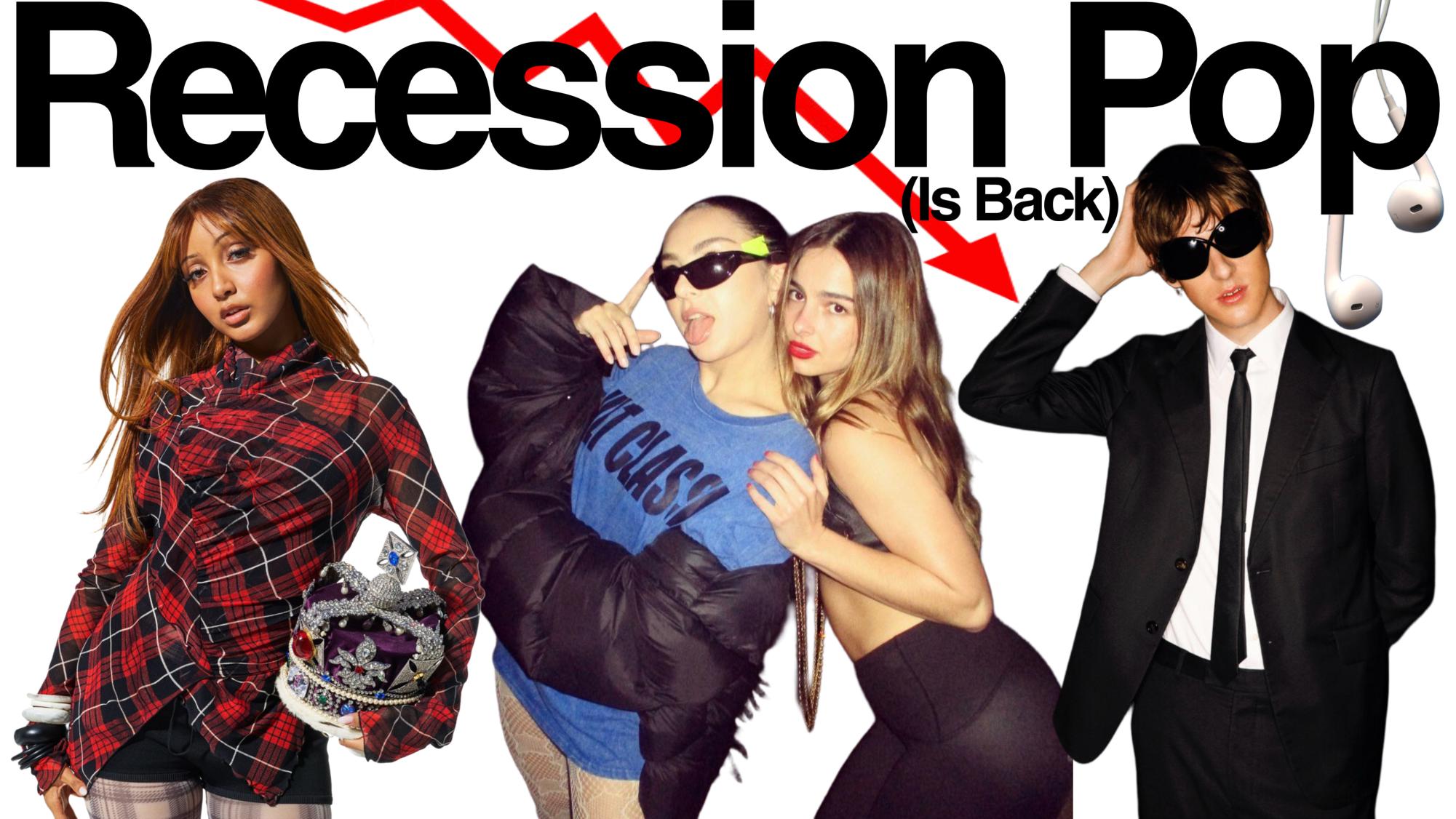
As of late, the global economy is facing the increasing fear of re-entering a recession. The current United States President, Donald Trump, has been making questionable moves left and right, and one of the many that strikes fear is the decision to enact tariffs. When the president announced these tariffs in what he deems “Liberation Day,” the stock market almost instantly plummeted, leading to alarming indicators that would signify a recession ahead. With this much economic and social instability, escapism is needed, and in that respect, recession-pop opens the escape hatch.
Despite the foreboding current economic resemblance to 2008, culturally, it’s also beginning to feel like it. The general public’s recent use of “recession indicators,” in which identifying aspects in the cultural landscape that offer insights to an economic shift, has become a mass meme across social media. Examples including, Coachella 2025 goers on payment plans to attend the festival and avoid debts, or Lady Gaga’s newest release, “Mayhem,” that recalls the sounds she pioneered in her debut album “The Fame,” coincidentally released during the 2008 recession and the return of previous fashion trends like the business-casual look seen back on recent runways as examined by Vogue Business, which was popularized for its duality as ‘the’ look to wear to work or on a night out to to the club. Intriguingly, among such returning culture-defining trends during an economic decline that could also be seen as a “recession indicator” is the reemergence of recession-pop.
Recession-pop is a sub-genre of dance music that directly describes the music popularized during 2008, characterized by high BPMs and lyrics that encourage audiences to dance their troubles away in times of economic uncertainty. While we may not be in a recession yet, it’s not entirely far-fetched for recession-pop to be a characteristic of an economic downturn.
To set the scene, it’s currently 2008, and the global economy is in shambles due to the stock market crash, and societies across the globe experience the resulting effects. In contrast, the cultural landscape is thriving despite the economic downturn. The top 10 on the Billboard charts during the late 2000s and early 2010s included “Just Dance” by Lady Gaga, “Tik Tok” by Kesha, when she carried the dollar sign in her name, “Dynamite” by Taio Cruz and “I Gotta Feeling” by The Black Eyed Peas, just to name a few. What all of these songs have in common is their escapist nature, defying the state of reality’s hardships that plagued the generation by liberating oneself on a dancefloor to escape the troubles for a night out and embrace life.
Fast forward to 2025, and we’re forced to again address the question of re-entering a recession as a previous generation did in 2008, reaching for the very same escapist music to dance our troubles away.
However, it isn’t new that we turn to art in economic uncertainty. Much of the most influential art throughout our history has been produced during times of adversity. The Dadaist movement of the 1920’s for example, is seen as a direct result of the carnage of World War 1. The movement was a reaction to the terrors of the war, using art as a platform to challenge societal norms and reject the traditional values of art to critique social and political commentary. Its influence was so grand, it managed to reach music that favored unconventional emphasis on sound. Additionally, some of the most iconic music to emerge from American musicians was released during the Vietnam War. The music during this time period specifically expressed sentiment towards the soldiers and a reflection of the war’s impact on the domestic climate. While both far from the escapist nature recession pop is known for, it’s evident then that when society shares trauma, music is one of the few outlets where tangible results can be referenced.
Fast forward 16 years later, before the announcement of the tariffs being enacted into place, current generations have been plagued economically and socially with its trials from inflation, poor job market prospects, stagnant wages, social incertitude and declining mental health, all the while longing for a sense of stability in an unstable climate.
In an article by New Yorker staff writer Kyle Chayka, he claims the usage of recession indicator memes as a response to Trump’s tariff policies is a sign of the current shared physiological state.
“Most of these indicators are meant as jokes, but like many internet memes, they hint towards a collective psychological state that’s affirmed with each Like and Share,” Chayka said.
Another thing worth noting was the global pandemic of 2020 that forced societies to isolate themselves from the outside world, restricting how we socialize and interact. It’s an aspect we continue to recover from as conceptions of what it means to “go out” changed, especially among the youth, as a result of the pandemic. It could also explain the resurgence of recession pop as we can sometimes find ourselves living vicariously through music that elicits the idea of partying and pure resilience that all fall within’ nostalgia.
Further, Chayka questions, “Could a recession evoke feelings of nostalgia, recalling memories of the previous financial crisis, when the economy and labor force endured major damage but at least the international democratic coalition didn’t seem so shaky?”
With this, it’s difficult not to reflect on the media society is consuming, which would be indicative of the cognitive state. It all contributes to the outward manifestation of escapism in the return of recession-pop as the current generation pines for it, giving our all just to disconnect.
Looking at last year’s spew of releases from every popular artist, every release presented the commonality that we all wished for. This was the escapism aspect appearing in the music among the trying conditions universally encountered. One artist that was highly characteristic of this is Charli XCX, who saw a surge in popularity that thrust her back into the public lens again with “BRAT,” single-handedly dominated and defined the cultural and social landscape of 2024 and continues to, as did the music itself, draw influence from electronic dance music and rave, as well as the music from the late-2000s’ which is deeply rooted in nostalgia.
On XCX’s Club Classics, she perfectly encapsulated the sole purpose of what recession pop stands for. When she sings “When I go to the club, I wanna hear those club classics” on a Jersey-club beat with whirling synths, it’s hard not to imagine yourself in a similar club, surrounded by people who’ve been completely taken over by the music as they jump and down, flashed by lights and beams. It is an experience generations long for, especially in these trying times, when they yearn to escape.
Among others that have been at the forefront of this movement and industry peers of XCX, is The Dare, who recently emerged from the underground scene, most associated with the reappearance of the indie-sleaze trend last seen during ‘08. One listen to his latest release, “What’s Wrong With New York?” characterized by the abrasive electro-clash sound, pretentious lyrics and vivid imagery of partying, and you’ll instantly find yourself in an edgy, trashy, dark club. Further, Pinkpantheress has also been taking notes from this current wave on her latest mixtape, “Fancy That,” which has production credits from The Dare as well, influenced by the Europop and UK house movement of the late 2000s. Much of her music, especially “Fancy That,” feels familiar to the recession-pop category and it’s evident now more than ever.
In an article by The Cut morning blogger, Julia Reinstein cites rising newcomer Addison Rae and her new single “Headphones On” as a recession indicator, and it’s not especially hard to see why.
Rae sings, “Guess I gotta accept the pain, need a cigarette to make me feel better, every good thing comes my way, so I– put my headphones on.” If that doesn’t capture the escapist attitude, I don’t know what does.
Rae’s rebrand from TikTok star to bonafide pop-star is also very in line with the 2012 Tumblr-girl and Y2K aesthetics from Lana Del Rey to Britney Spears, both seemingly coexisting within Rae’s music as her greatest influences. They’re imagery is especially seen in Rae’s music videos, using nostalgia to her advantage, to which Reinstein also cites as a recession indicator. The title of the article is even named “Escape to 2008 With Addison Rae,” coated with nostalgic and escapist iconography throughout her piece.
As Reinstein writes, “If it weren’t already clear we’re headed for a recession, Rae’s insistence on releasing Tumblr-ready music videos is as sure a sign as any.”
This rising demand for such particular music is becoming more of a speculation as fans see the increase with each release from every major and underground artist alike, taking on similar themes of optimism that dwells in the roots of recession-pop.
Yet that’s the point of pop music in general, is to have a good time despite the adversities, which is solely the reason for pop music being used as an anchor to catch a vibe, substantially in the hardest of times. With so much uncertainty, it’s imperative that music like this is needed.
Sports
‘Professional athletes in their prime’ – World Sevens tournament reimagines 7v7 soccer with prime-time players, fast-paced format
World Sevens is trying to make a name for itself in women’s small-sided soccer, with elite European clubs leading the way Jennifer Mackesy was there in 2024, under the shadow of the Eiffel Tower. She heard the beat of the drums, the screams of the crowd, the thud of the DJ’s playlist in the background. […]
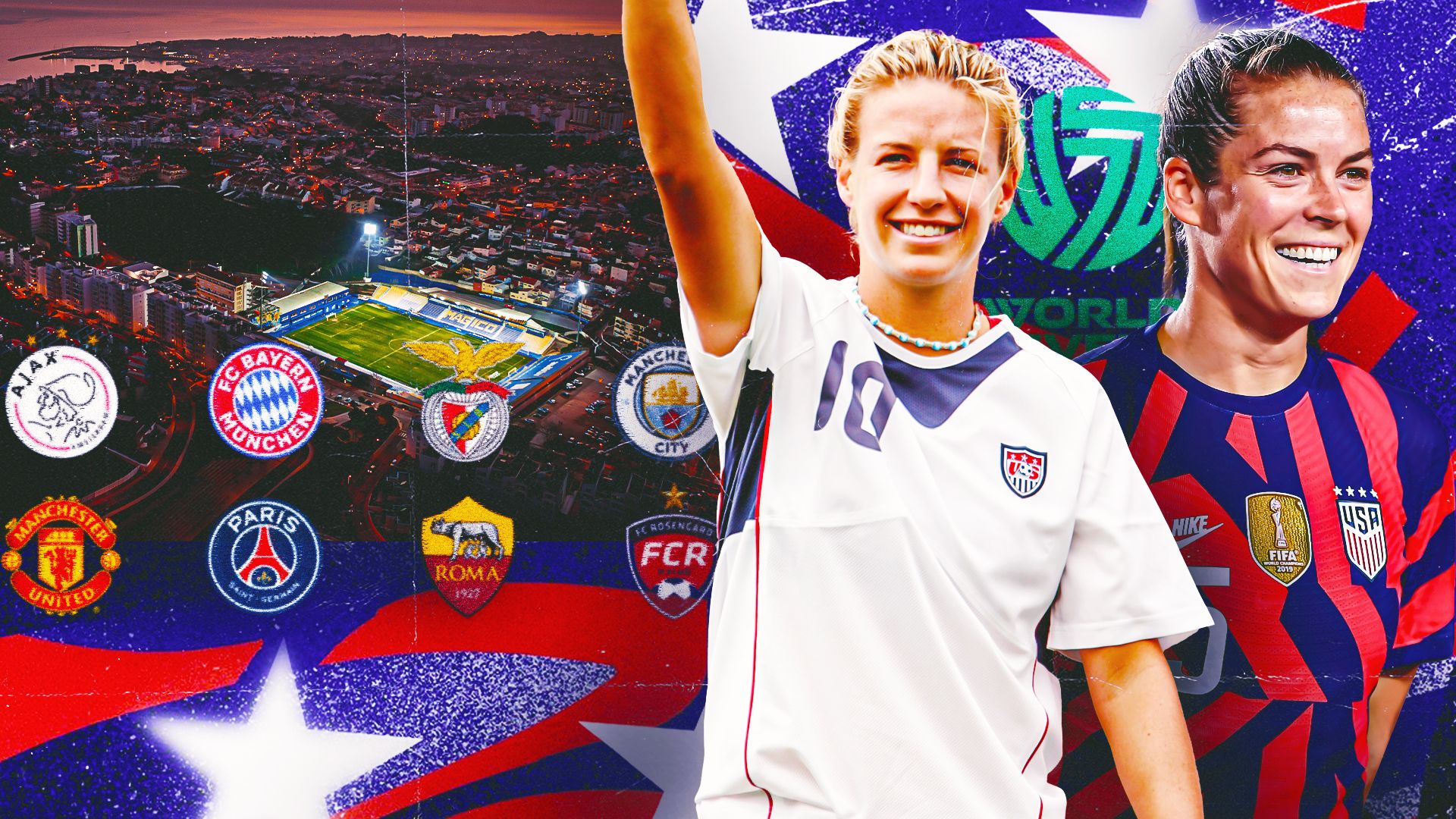
World Sevens is trying to make a name for itself in women’s small-sided soccer, with elite European clubs leading the way
Jennifer Mackesy was there in 2024, under the shadow of the Eiffel Tower. She heard the beat of the drums, the screams of the crowd, the thud of the DJ’s playlist in the background. There were flags, shouts and an untamed energy about the whole thing.
The event? The women’s beach volleyball tournament at the Paris Olympics. As Mackesy sat there, taking it all in, watching the intensity of the sport perfectly complemented by the “oohs” and “aahs” of those in the stands powered by the the beat of the music, she drew one conclusion: this was what her women’s soccer tournament was going to look like.
“It was one of the most remarkable sporting events I’ve ever attended, and the level of athleticism and excitement that you saw on the volleyball court was one thing, but the energy in the stadium was like nothing I’ve ever seen,” Mackesy said.
Those games served as the central touch point for the latest soccer venture into the world of small-sided sports. This is not necessarily a new phenomenon, but World Sevens, co-founded by Mackesy and supported by prominent figures in the women’s game, offers a unique angle – a 7v7 tournament that puts real professionals at the forefront while retaining the fun of other competitions.
“The idea of bringing in professional women’s team elite clubs from around the world, to be able to participate in that format, just seemed like an incredible opportunity,” Mackesy said of the tournament, which is set to debut May 21-23 in Portugal.
Small-sided soccer has been around for a while, the professional indoor game chugging along in the background even as 11v11 dominated the conversation. But it has moved into the mainstream in recent years.
The Soccer Tournament, a.k.a. TST, has been held in North Carolina the past two summers, drawing influencers, ex-pros and millions of clicks as a result. Baller League has pieced together some of the highest profile names in the English game. Kings League, founded by Barcelona legend Gerard Pique, draws on all aspects of the entertainment industry – and has now gone global. Even the success of Unrivaled, a professional 3v3 women’s basketball tournament in the U.S., proved that quickened versions of more traditional games can thrive.
World Sevens, its founders insist, is different. Yes, this will be fun. Yes, there will be music. Yes, it will be more action-packed and, at times, more watchable than 11v11 soccer. But crucially, the involvement of eight professional clubs – all vying for a $5 million prize pot – is intended to produce a level of quality that many of the other tournaments fail to bring.
Established professional clubs from the best leagues across the globe have committed to participating. For the May 2025 tournament, there will be eight professional clubs competing, including the likes of Bayern Munich, Manchester City, Manchester United and PSG.
“They want to win because they have pride and they want to be the best in the world at seven-a-side football,” Mackesy added.
Sports
University Northern Iowa
CARBONDALE, Ill. — The UNI track and field team on Saturday wrapped up a strong performance at this year’s Missouri Valley Conference (MVC) Outdoor Championships at the Lew Hartzog Track and Field Complex on Sunday, with both the men’s and women’s programs finishing third in their respective team races. The top-three finishes mark the Panther […]
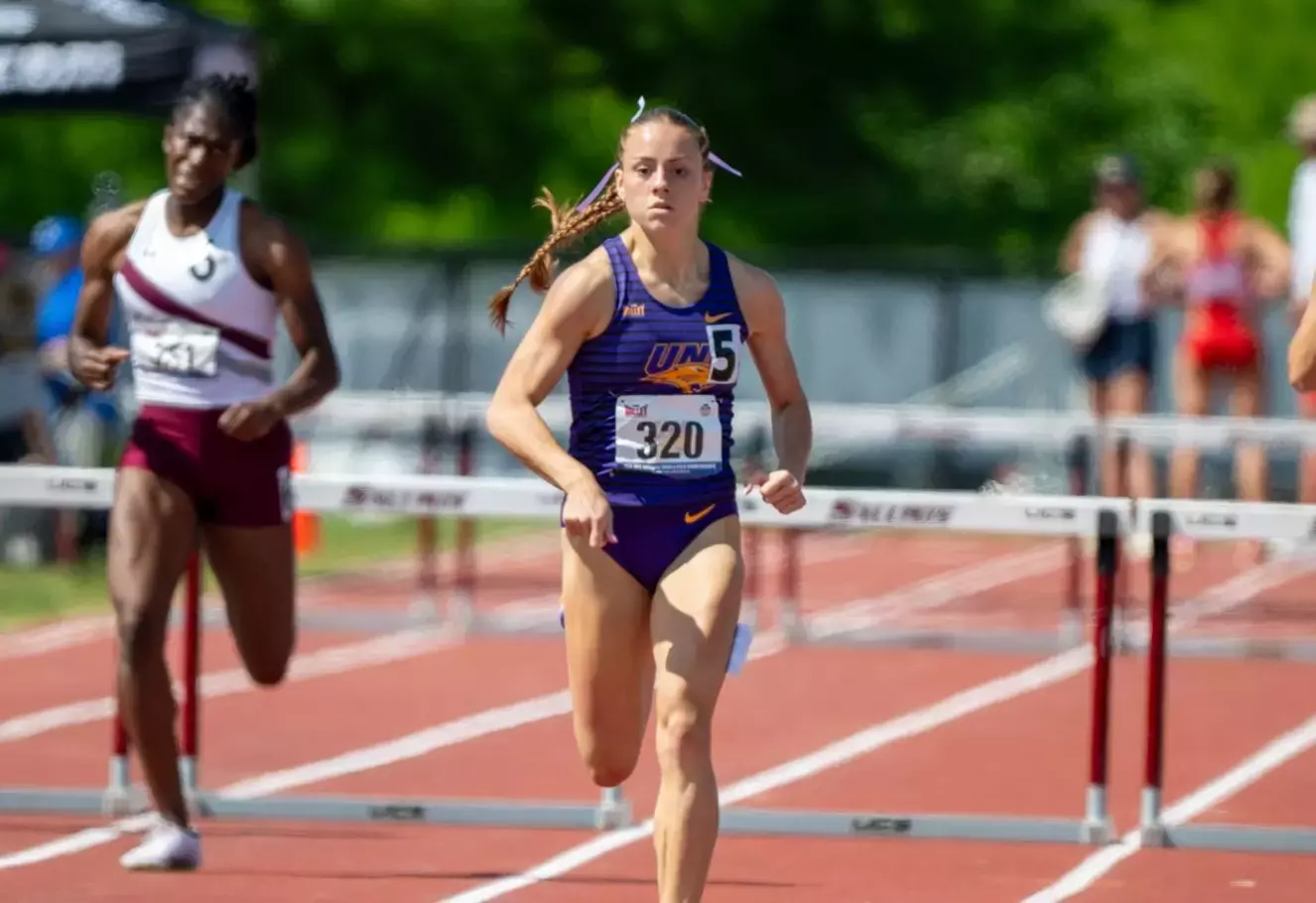
CARBONDALE, Ill. — The UNI track and field team on Saturday wrapped up a strong performance at this year’s Missouri Valley Conference (MVC) Outdoor Championships at the Lew Hartzog Track and Field Complex on Sunday, with both the men’s and women’s programs finishing third in their respective team races.
The top-three finishes mark the Panther men’s tenth top-three finish in the last 11 seasons, while the UNI women recorded their highest team finish since 2016 when they placed second. Indiana State captured the team titles for both men and women.
Individually, Northern Iowa swept both of the multi-event competitions as Joey Perry became UNI’s first MVC heptathlon champion since 2017, while Zack Butcher captured his third career conference decathlon crown, securing UNI’s fourth win in the event in the last six seasons. Thrower Katie Fare solidified her position as one of the league’s top throwers with a women’s shot put title, the Panthers’ first in the event since 2007, as Carlie Jo Fusco won her first MVC title in the 400-meter hurdles, UNI first winner in the event in nine years.
Following the meet, Fare, along with Brendan Safley, who won the men’s pole vaulting title on Saturday, were named the MVC Field Athletes of the Meet. Fare also received this honor during the MVC Indoor Championships this past March.
HOW IT HAPPENED
Perry, who led the heptathlon after a pair of event wins on Saturday, closed out the two-day, seven-event competition strong with wins in the long jump and 800 meters on Sunday to finish with 5,163 points, becoming UNI’s first heptathlon champion since Rachel Peth in 2015. Katy Hand meanwhile set a new career-best score of 4,635 points to take fifth.
After capturing three event wins in the decathlon on Saturday, Butcher finished the ten-event competition with a career-high 7,379 points, becoming the fifth athlete in conference history to win the event at least three times, having previously won the MVC decathlon in 2021 and 2023. Brody Lovell also set a new career-best score of 6,294 points with a seventh-place finish. UNI has notably won four of the last six MVC decathlon competitions.
Fare added to her decorated throwing career with a winning throw of 16.94 meters in the women’s shot put, securing the 2025 MVC indoor and outdoor shot put sweep. She is also the first Panther to win the outdoor shot put crown since Rachel Jensen in 2007. Jorie Hanenburg placed sixth in the women’s shot put with a career-best 14.73-meter toss. In addition to her shot put title, Fare also placed fifth in the women’s hammer throw with a career-best 56.39-meter toss.
On the track, Carlie Jo Fusco, in her first MVC Outdoor Championship meet, captured the women’s 400-meter hurdles title with a career-best and facility record time of 58.85 seconds, becoming Northern Iowa’s first champion in the event since Paige Knodel in 2016. Eden Moore followed Fusco in sixth place (1:01.94). Freshman Hogrefe took fourth in the men’s 400-meter hurdles with a career-best 53.27 second time, as Bill Mukhtar took eighth (54.06).
In the jumping pits, Josie Moreland tied her own school record with a second-place showing in the women’s high jump (1.78m) with Rylie Todd following in third place (1.75m). Caden Ungs meanwhile finished fifth in the men’s high jump (1.99m), while Soren Maricle captured seventh in the women’s triple jump with a career-best 11.60-meter mark.
Spencer Kessel would lead the Panther men’s throwing core with a third-place showing in the shot put with a season-best 18.450-meter throw, with David Russel taking fifth with a career-best 18.19-meter toss, Sebastian Swistak taking sixth (17.82m) and Carson Lienau eighth (17.43m). Kessel also took fourth in the hammer throw with a career-best 57.74-meter performance as Nathan Wilde took fifth (57.41m).
Parker Kiewiet clocked a season-best 46.93 with a third-place finish in the men’s 400 meters with Zach Fall taking fifth (47.88), while Drake Hanson led the way for the Panthers with a third-place performance in the men’s 800-meter run, dropping two seconds from his preliminary time on Saturday (1:49.15). Chase Knoche followed Hanson in fourth (1:49.84) with Derek Woods taking sixth (1:52.49). Emma Hoins also took home eighth in the women’s 5,000 meters (17:10.26).
In the sprints, Paige Kisley took fourth in the women’s 100-meter hurdle finals (13.97), with Kiewiet (21.29) and Deonte Dean (21.31) placing sixth and seventh respectively in the mens’ 200-meter dash. Luke Meyers crossed the finish line seventh in the men’s 100-meter dash (10.71), as Jersey Jones captured eighth place in the women’s 400 meters (56.19).
In the relays, the 4×400-meter men’s relay team of Onal Mitchell, Hanson, Meyers and Fall clocked a 3:11.22, while the women’s team of Perry, Jones, Maya Williams and Fusco ran a 3:39.70, both finishing third. UNI finished fourth in the men’s 4×100-meter relay with the team of Meyers, Jerome Jessup, Drew Bartels and Dean (40.31), as Kisley, Olivia Kramer, Eva Van De Mortel and Jessica Kyle took sixth (46.03).
FINAL WOMEN’S TEAM STANDINGS
- 1st – Indiana State (140.5)
- 2nd – Illinois State (119)
- 3rd – UNI (110)
- 4th – Missouri State (90)
- 5th – Bradley (76)
- 6th – Southern Illinois (75)
- 7th – Belmont (73)
- 8th – Murray State (64.5)
- 9th – Drake (63)
- 10th – UIC (8)
- T11th – Evansville (0)
- T11th – Valparaiso (0)
FINAL MEN’S TEAM STANDINGS
- 1st – Indiana State (210)
- 2nd – Illinois State (149)
- 3rd – UNI (124)
- 4th – Drake (85)
- 5th – Southern Illinois (79)
- 6th – Belmont (64)
- 7th – Bradley (54)
- 8th – Evansville (26)
- 9th – Valparaiso (17)
- 10th – UIC (10)
SPECIALTY AWARD WINNERS
- Women’s Most Valuable Athlete – Leah Thames (Southern Illinois)
- Men’s Most Valuable Athlete – Casey Hood Jr. (Indiana State)
- Women’s Freshman of the Year – Justice Boston (Indiana State) & Emma Yoder (Indiana State)
- Men’s Freshman of the Year – Andre Jackson II (Southern Illinois)
- Women’s Most Outstanding Track Athlete – Rachel Mehringer (Indiana State)
- Men’s Most Outstanding Track Athlete – Casey Hood Jr. (Indiana State)
- Women’s Most Outstanding Field Athlete – Katie Fare (UNI)
- Men’s Most Outstanding Field Athlete – Brendan Safley (UNI)
- Women’s Elite 18 Award – Brooke Garter (Belmont)
- Men’s Elite 18 Award – Will Staggs (Indiana State)
UP NEXT
Qualified athletes will head south to College Station, Texas for the NCAA West Regional Prelim Meet, scheduled for May 28-31 at E.B. Cushing Stadium on the campus of Texas A&M University. The list of qualified athletes is expected to be announced this week.
UNI track and field action can be followed all season long on social media on Facebook (UNI Track and Field), X (@UNITrackFieldXC) and on Instagram (@uni_tf_xc). Schedules and rosters, along with the latest Panther news and information can be found online at UNIpanthers.com.
Sports
Laguna Open – AVP Beach Volleyball
The 70th Annual Laguna Open returns to Main Beach – this year as an AVP Contender Event. Sunday, September 14– 7:30 a.m. Women’s QF, 8:30 a.m. Men’s QF, 9:30 a.m. Women’s SF, 10:30 a.m. Men’s SF, 11:30 a.m. Women’s Final, 12:30 p.m. Men’s Final and Battle of the Beaches Final at 1:30 p.m. The Laguna […]

The 70th Annual Laguna Open returns to Main Beach – this year as an AVP Contender Event.
Sunday, September 14– 7:30 a.m. Women’s QF, 8:30 a.m. Men’s QF, 9:30 a.m. Women’s SF, 10:30 a.m. Men’s SF, 11:30 a.m. Women’s Final, 12:30 p.m. Men’s Final and Battle of the Beaches Final at 1:30 p.m.
The Laguna Open is free to all. Bring a beach chair and come join the fun to watch many of the top AVP players battle it out for the last event of the AVP calendar.

-

 College Sports3 weeks ago
College Sports3 weeks agoDuke basketball's Isaiah Evans on 2025 NBA Draft early entry list
-

 Fashion2 weeks ago
Fashion2 weeks agoHow to watch Avalanche vs. Stars Game 7 FREE stream today
-

 High School Sports1 week ago
High School Sports1 week agoWeb exclusive
-
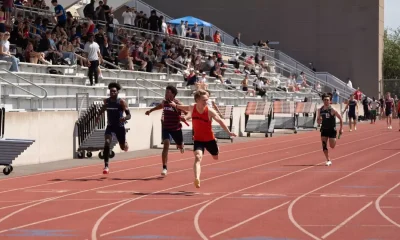
 Sports1 week ago
Sports1 week agoPrinceton University
-
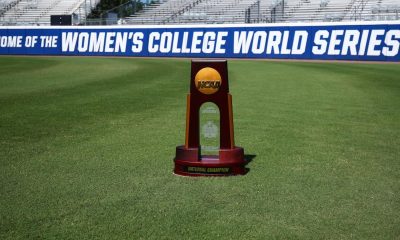
 Sports1 week ago
Sports1 week ago2025 NCAA softball bracket: Women’s College World Series scores, schedule
-

 Motorsports2 weeks ago
Motorsports2 weeks agoBowman Gray is the site of NASCAR’S “Advance Auto Parts Night at the Races” this Saturday
-
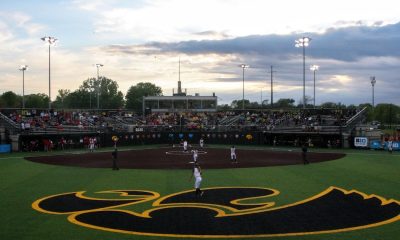
 NIL2 weeks ago
NIL2 weeks ago2025 Big Ten Softball Tournament Bracket: Updated matchups, scores, schedule
-
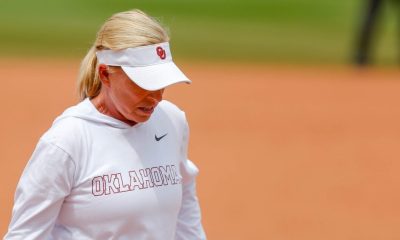
 NIL2 weeks ago
NIL2 weeks agoPatty Gasso confirms Sophia Bordi will not finish season with Oklahoma softball
-

 Motorsports2 weeks ago
Motorsports2 weeks agoMOTORSPORTS: Three local track set to open this week | Sports
-

 Motorsports2 weeks ago
Motorsports2 weeks ago$1.5 Billion Legal Powerhouse Announces Multi-Year NASCAR Deal With Kyle Busch






 | #Shorts
| #Shorts











